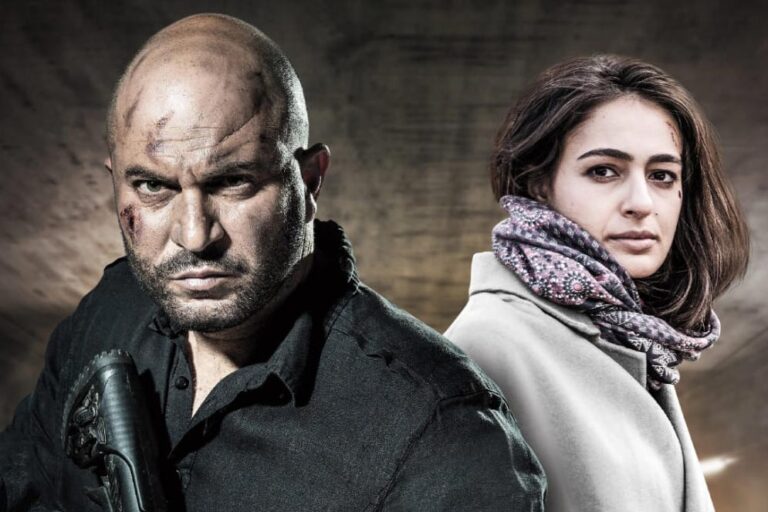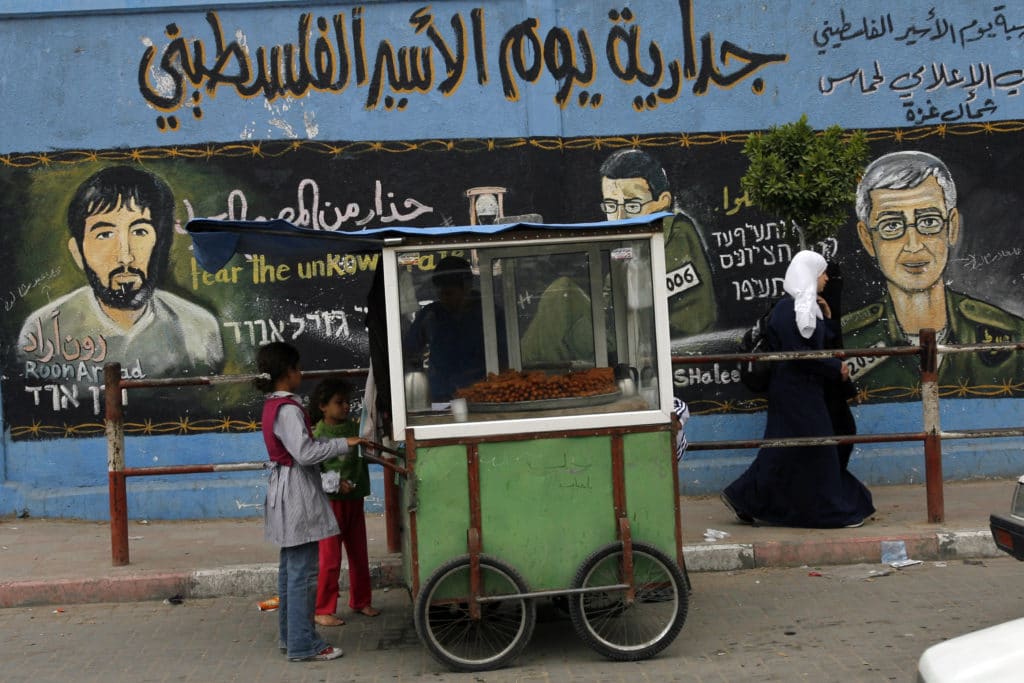
Netflix’s hit show “Fauda” released its fourth season earlier this year. Although the show’s characters and storylines are completely fictional, it is inspired by real-life events.
For example, the show follows an elite unit modeled after Israel’s real-life undercover unit, Duvdevan, in their ongoing battle against terrorism.
The authenticity of “Fauda” is anchored in co-creator and lead actor Lior Raz’s personal experience. Having served in the Israeli Special Forces and security for 23 years, Raz uses his firsthand knowledge to infuse the show with a sense of palpable realism.
So, here’s a guide to the real-world context behind the show.
What is life like in the IDF’s elite undercover unit?
Fauda’s elite undercover unit is based on Duvdevan (meaning “cherry,” as in the “cherry on top” of the IDF) — a branch of the Mista’arvim, or counterterrorism unit.
Members of Duvdevan perform covert operations within Palestinian villages, often carrying out arrests of wanted terrorists.
“Fauda,” which means “chaos” in Arabic, is the code word undercover Israeli forces use when their mission has been compromised, signaling the need for immediate extraction.
As depicted in the series, the unit’s soldiers and officers often pay a steep psychological and physical price for the high-stress lives that they live.
As in real-life, many soldiers in elite, undercover units often suffer from PTSD. Many, like Doron, face divorce. Tragically, the commitment to protect their nation can leave families bereft of a spouse or parent.
What is Hamas?
As portrayed time and time again in the show, Hamas sends out jihad fighters to commit acts of terror against Israeli citizens.
Recognized as a terrorist organization by the majority of the world, Hamas is a fundamentalist Islamic resistance movement that aims to destroy Israel (and its people) in order to create an independent Islamic state.
The terror group was behind a wave of devastating suicide bombings and other activities in the 1990s and 2000s. More recently, Hamas has launched thousands of rockets at Israel, dug attack tunnels in order to infiltrate Israeli communities, and inspired countless lone-wolf attacks on Israeli soldiers and civilians.
Israel withdrew its forces from Gaza in 2005, and Hamas took control of the area. Today, it governs over 2 million Palestinians with a fundamentalist form of religious doctrine.
Hamas celebrates anyone who commits a suicidal act in order to harm Jews as a “shahid” or a martyr. The group rewards each shahid’s death, showering their families with monetary funds and status.
What is Hezbollah?
Season 4 pivots its attention to Hezbollah, a terrorist organization based in Lebanon with ties to Iran and Syria. Its primary objective, as voiced by its leader Hassan Nasrallah, is to eradicate Israel, which he referred to as a “cancerous tumor.”
Formed in 1982, Hezbollah has orchestrated several devastating attacks against Jews worldwide, including a bus bombing targeting Israeli tourists in Bulgaria and a strike on a Jewish community center in Buenos Aires, claiming 85 lives.
Supported by Iran with more than $700 million per year, Hezbollah’s first manifesto, released in 1985, called for the establishment of an Islamic Republic in Lebanon and stated: “Our struggle will end only when this entity [the state of Israel] is obliterated.”
Despite its terrorist activities, Hezbollah has attempted to rebrand itself as a political party, offering social services to its constituents including infrastructure, healthcare, and education, earning substantial support from Lebanon’s Shiite community.
The U.S., Canada, the United Kingdom, Germany, the Arab League, Israel and many other countries consider Hezbollah to be a terrorist organization, while the European Union only designates its military wing as a terrorist group.
Inside Gaza
As Season 3 draws to a close, viewers are transported inside the Gaza Strip through the terror tunnels used to smuggle people, goods, and weapons in and out of the city.
These tunnels, like the ones used to smuggle the fictional characters Elad and Yaara, into Gaza do exist: Israel discovered Hamas’ tunnel network in 2014, when heavily armed terrorists emerged from one near the Israeli community of Sufa, close to the Gaza border.
To date, the IDF has discovered and destroyed about 50 hidden tunnels. A significant project, costing $1.1 billion, was completed in 2021, providing an above- and below-ground barrier spanning the length of the Gaza Strip.
The 40-mile barrier also extends out to sea to prevent Hamas from constructing underwater tunnels, a tactic they’ve previously attempted.
Hamas kidnappings
Season 3 of “Fauda” also includes the kidnapping of Yaara and Elad.
Thankfully, since the summer of 2014, no civilian kidnappings have been orchestrated by Hamas or any other terrorist organization. During that tragic summer, Eyal Yifrah, 19, Gilad Shaar, 16, and Naftali Fraenkel, 16, were taken and murdered by terrorists in the West Bank.
Prior to that, in 2006, IDF soldier Gilad Shalit was kidnapped during a Hamas raid on the tank he was serving in along the Gaza Strip.

Shalit finally returned home in 2011 as part of a controversial prisoner exchange deal. In exchange for Shalit, Israel released 1,027 Palestinian prisoners, some of whom were serving life sentences for conducting terrorist attacks that killed Israelis.
Although a poll at the time showed four out of five Israelis supporting the agreement, many, including families of terrorism victims and some government officials, opposed the decision due to potential security risks.
Israel’s unwavering commitment to its soldiers
The main characters of “Fauda” will stop at nothing to save a Jewish life. This reflects the great significance Jewish tradition places on pikuach nefesh, saving or rescuing a life.
Israel personifies this principle in its relentless efforts to bring home its missing soldiers. In 2021, then-Israeli Prime Minister Naftali Bennett revealed that Mossad agents went on a mission to uncover new information about Ron Arad, an Israeli Air Force navigator who has been missing since 1986 and was presumed dead.
In his announcement to the Knesset, Bennett stated that freeing captives “is a Jewish value that became one of the holiest values of the State of Israel.”
The operation to uncover information about Arad 35 years after he was captured might “look strange, and perhaps a little extreme to those looking at Israel from the outside,” he admitted, “but it is what defines us and sets us apart.”
Originally Published Jun 14, 2023 04:17PM EDT
